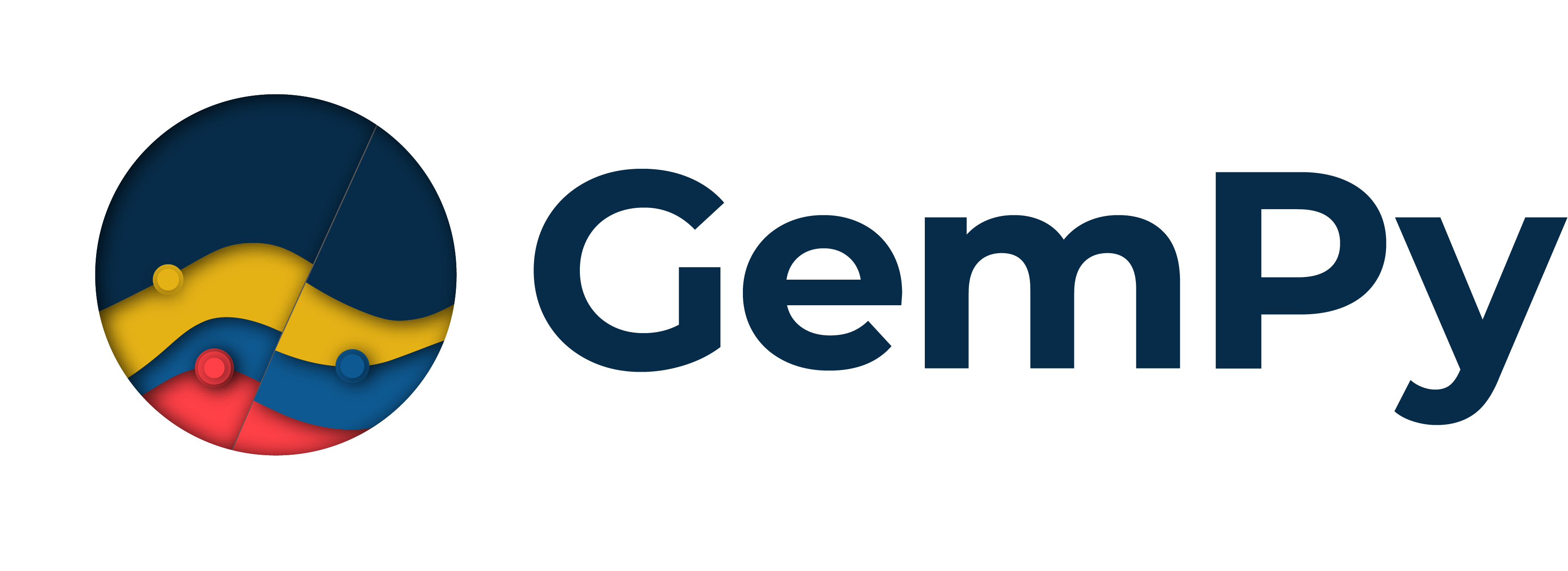import warnings
from typing import Union, Hashable, Literal
import numpy as np
from numpy import ndarray
from gempy.API.io_API import read_surface_points, read_orientations
from gempy_engine.core.data import InterpolationOptions
from ..core.data import StructuralElement
from ..core.data.geo_model import GeoModel
from ..core.data.grid import Grid
from ..core.data.importer_helper import ImporterHelper
from ..core.data.options import InterpolationOptionsType
from ..core.data.orientations import OrientationsTable
from ..core.data.structural_frame import StructuralFrame
from ..core.data.surface_points import SurfacePointsTable
from ..optional_dependencies import require_pooch
from ..optional_dependencies import require_subsurface
[docs]
def create_geomodel(
*,
project_name: str = 'default_project',
extent: Union[list, ndarray] = None,
resolution: Union[list, ndarray] = None,
refinement: int = 1,
structural_frame: StructuralFrame = None,
importer_helper: ImporterHelper = None,
intpolation_options_tye: InterpolationOptionsType = InterpolationOptionsType.OCTREE,
) -> GeoModel: # ? Do I need to pass pandas read kwargs?
"""
Creates a geological model based on input parameters, spatial configuration, and interpolation options.
This function initializes a geological model by defining the grid (dense grid or
octree-based), selecting interpolation options based on the desired type, and
configuring the structural frame using either a provided structural frame or an
importer helper instance. The geological model is tailored for specific project-based
requirements and can be either dense or with variable resolution depending on the
refinement level.
Args:
project_name (str): Name of the geological model project. Defaults to 'default_project'.
extent (list, ndarray): Spatial extent of the geological model in the form of
[min_x, max_x, min_y, max_y, min_z, max_z].
resolution (list, ndarray): Resolution of the model grid in the form [x_res, y_res, z_res].
If not provided, the function will default to octree initialization.
refinement (int): Refinement level for the octree grid. Ignored if resolution is provided.
Defaults to 1.
structural_frame (StructuralFrame): Pre-configured instance of StructuralFrame
for the geological model. If not provided, an importer_helper must be supplied.
importer_helper (ImporterHelper): Helper object for initializing a structural frame if none
is explicitly provided.
intpolation_options_tye (InterpolationOptionsType): Enum representing the desired type of
interpolation options. Defaults to InterpolationOptionsType.OCTREE.
Returns:
GeoModel: An initialized geological model with specified spatial configuration
and interpolation properties.
Raises:
ValueError: If neither structural_frame nor importer_helper is provided.
ValueError: If the interpolation options type is unrecognized.
"""
# init resolutions well
if resolution is None:
grid: Grid = Grid.init_octree_grid(
extent=extent,
octree_levels=refinement
)
else:
grid: Grid = Grid.init_dense_grid(
extent=extent,
resolution=resolution
)
match intpolation_options_tye:
case InterpolationOptionsType.DENSE_GRID:
interpolation_options: InterpolationOptions = InterpolationOptions.init_dense_grid_options()
case InterpolationOptionsType.OCTREE:
interpolation_options: InterpolationOptions = InterpolationOptions.init_octree_options(refinement=refinement)
case _:
raise ValueError(f"Interpolation options type {intpolation_options_tye} not recognized. Use InterpolationOptionsType.DENSE_GRID or InterpolationOptionsType.OCTREE.")
match (structural_frame, importer_helper):
case (None, None):
# ? For now my gut feeling is that is better to pass the structural frame explicitly
raise ValueError("Either structural_frame or importer_helper must be provided. You can use StructuralFrame.initialize_default_structure() to create a default structural frame.")
structural_frame = StructuralFrame.initialize_default_structure()
case (None, _):
structural_frame = _initialize_structural_frame(importer_helper)
case _:
pass
geo_model: GeoModel = GeoModel.from_args(
name=project_name,
structural_frame=structural_frame,
grid=grid,
interpolation_options=interpolation_options
)
return geo_model
[docs]
def structural_elements_from_borehole_set(
borehole_set: "subsurface.core.geological_formats.BoreholeSet",
elements_dict: dict,
group_by: Literal['component lith', 'lith_ids'] = 'lith_ids'
) -> list[StructuralElement]:
"""Creates a list of StructuralElements from a BoreholeSet.
Args:
borehole_set (subsurface.core.geological_formats.BoreholeSet): The BoreholeSet object containing the boreholes.
elements_dict (dict): A dictionary containing the properties of the structural elements to be created.
Returns:
list[StructuralElement]: A list of StructuralElement objects created from the borehole set.
Raises:
ValueError: If a top lithology ID specified in `elements_dict` is not found in the borehole set.
"""
ss = require_subsurface()
borehole_set: ss.core.geological_formats.BoreholeSet
elements = []
component_lith: dict[Hashable, np.ndarray] = borehole_set.get_bottom_coords_for_each_lith(group_by=group_by)
for name, properties in elements_dict.items():
top_coordinates = component_lith.get(properties['id'])
if top_coordinates is None:
raise ValueError(f"Top lithology {properties['id']} not found in borehole set.")
element = StructuralElement(
name=name,
id=properties['id'],
color=properties['color'],
surface_points=SurfacePointsTable.from_arrays(
x=top_coordinates[:, 0],
y=top_coordinates[:, 1],
z=top_coordinates[:, 2],
names=[name],
name_id_map={name: properties['id']}
),
orientations=OrientationsTable(np.zeros(0, dtype=OrientationsTable.dt))
)
elements.append(element)
# Reverse the list to have the oldest rocks at the bottom
return elements
def create_data_legacy(
*,
project_name: str = 'default_project',
extent: Union[list, ndarray] = None,
resolution: Union[list, ndarray] = None,
path_i: str = None,
path_o: str = None) -> GeoModel: # ? Do I need to pass pandas read kwargs?
warnings.warn("This method is deprecated. Use create_geomodel instead.", DeprecationWarning)
return create_geomodel(
project_name=project_name,
extent=extent,
resolution=resolution,
importer_helper=ImporterHelper(
path_to_surface_points=path_i,
path_to_orientations=path_o
)
)
def _initialize_structural_frame(importer_helper: ImporterHelper) -> StructuralFrame:
surface_points, orientations = _read_input_points(importer_helper)
return StructuralFrame.from_data_tables(surface_points, orientations)
def _read_input_points(importer_helper: ImporterHelper) -> (SurfacePointsTable, OrientationsTable):
orientations_file, surface_points_file = _fetch_data_with_pooch(
orientations_hash=importer_helper.hash_orientations,
orientations_path=importer_helper.path_to_orientations,
surface_points_hash=importer_helper.hash_surface_points,
surface_points_path=importer_helper.path_to_surface_points
)
surface_points: SurfacePointsTable = read_surface_points(
path=surface_points_file,
coord_x_name=importer_helper.coord_x_name,
coord_y_name=importer_helper.coord_y_name,
coord_z_name=importer_helper.coord_z_name,
surface_name=importer_helper.surface_name,
pandas_kwargs=importer_helper.pandas_reader_kwargs
)
orientations: OrientationsTable = read_orientations(
path=orientations_file,
coord_x_name=importer_helper.coord_x_name,
coord_y_name=importer_helper.coord_y_name,
coord_z_name=importer_helper.coord_z_name,
surface_name=importer_helper.surface_name,
gx_name=importer_helper.gx_name,
gy_name=importer_helper.gy_name,
gz_name=importer_helper.gz_name,
pandas_kwargs=importer_helper.pandas_reader_kwargs,
name_id_map=surface_points.name_id_map
)
return surface_points, orientations
def _fetch_data_with_pooch(orientations_hash, orientations_path, surface_points_hash, surface_points_path):
def is_url(url):
from urllib.parse import urlparse
try:
result = urlparse(url)
return all([result.scheme, result.netloc])
except ValueError:
return False
pooch = require_pooch() if is_url(surface_points_path) or is_url(orientations_path) else None
# * Fetch or define path for surface points
if is_url(surface_points_path):
surface_points_file = pooch.retrieve(
url=surface_points_path,
known_hash=surface_points_hash
)
print("Surface points hash: ", pooch.file_hash(surface_points_file))
else:
surface_points_file = surface_points_path
# * Fetch or define path for orientations
if is_url(orientations_path):
orientations_file = pooch.retrieve(
url=orientations_path,
known_hash=orientations_hash
)
print("Orientations hash: ", pooch.file_hash(orientations_file))
else:
orientations_file = orientations_path
return orientations_file, surface_points_file
